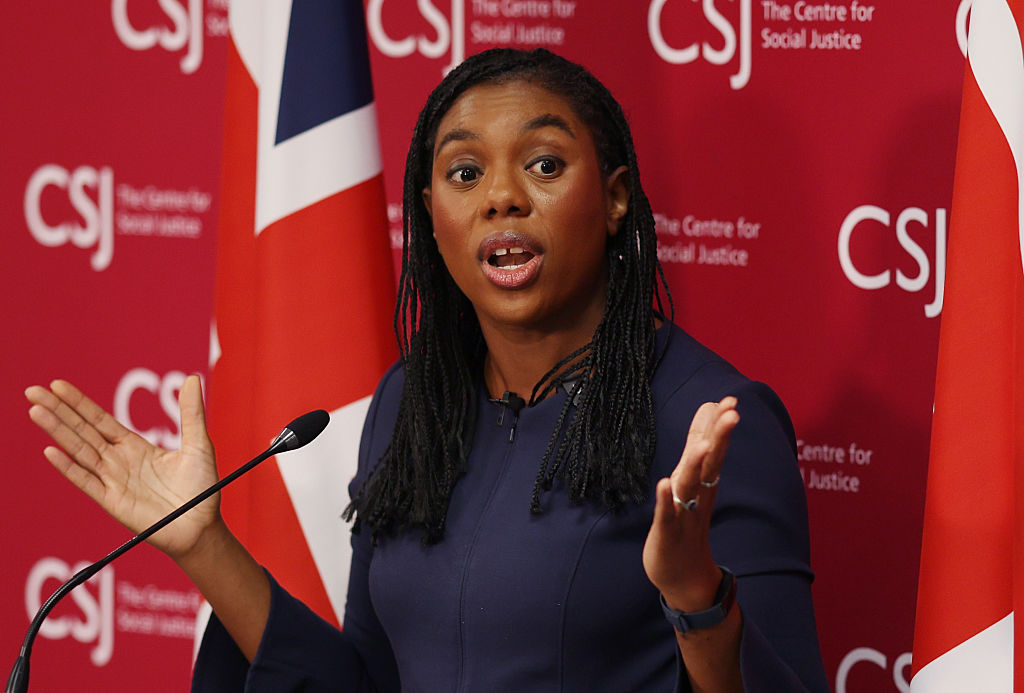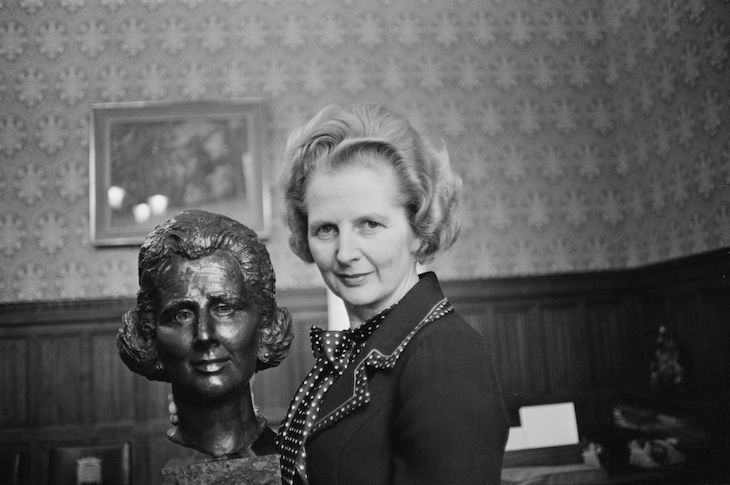‘We are becoming a welfare state with an economy attached,’ said Kemi Badenoch in a speech on sickness benefits today. She’s right, though anyone who read the Office for Budget Responsibility’s (OBR) dire report this week knows we’re past becoming: we already are.
The figures are staggering. The bill for sickness benefits is heading towards £100 billion a year. Soon, one in every four income tax pounds will go just to cover these payments. Meanwhile, a million young people are doing nothing at all –not in work, not in education, not in training. Badenoch called this not only ‘unaffordable and unjustifiable, but immoral’. Again, she’s right.
In a fiery speech hosted by the Centre for Social Justice (CSJ), Badenoch laid out her prescription: a return to the ‘Protestant work ethic’. Families, she said, must learn to rely on themselves before turning to the state. The country must rediscover the instinct to save for a rainy day (even though the UK already boasts one of the highest household saving rates in Europe).
But this isn’t just about money. It’s about psychology. Britain must reckon with over-diagnosis and the fact the word ‘disability’ risks ‘losing all meaning’. ‘Food intolerances are a medical fact’, she said, ‘but they’re not something we should be handing out new cars for’, taking a swipe at the Motability scheme.
Backing up her argument, the CSJ released figures showing that life on welfare now pays £2,500 more annually than a full-time job on the national living wage. ‘If we don’t solve this problem’, Badenoch warned, ‘our economy will collapse’. The OBR’s warning this week echoed her concerns: a spiralling benefits bill, rising debt, and a public that expects more even as the state can increasingly afford less.
Of Reform, who want to scrap the two-child benefit cap – she said their politics were ‘unserious’ and those defecting to them were behaving like we live in a ‘banana republic’. Farage, she said, is ‘Jeremy Corbyn with a pint and a cigarette’. But here lies a political risk: as The Spectator’s data team has pointed out, the areas most dependent on health-related benefits are often the same places where Reform has the least ground to gain. To those voters, Badenoch is offering the stick, but as yet, no carrot.
Yet for all her willingness to confront one of the most politically fraught issues in modern Britain, she still avoids the biggest cost in the welfare state: the triple lock on pensions. The OBR revealed this week that it now costs three times more than originally forecast. But this Conservative policy remains untouchable. ‘Our focus is on working-age benefits’, she insisted.
For naming the problem and framing it not just as an economic challenge but as a moral one, Badenoch deserves credit. But until someone is brave enough to confront the crushing costs of the pension system as well, the fiscal crisis the OBR warns of remains likely.








Comments